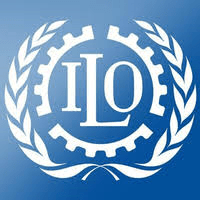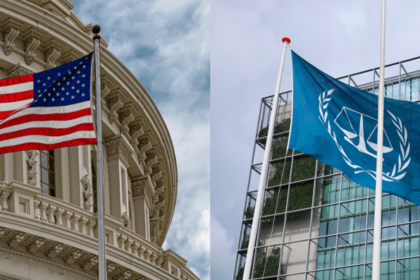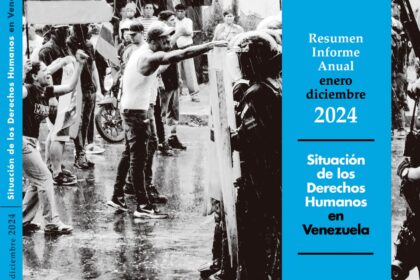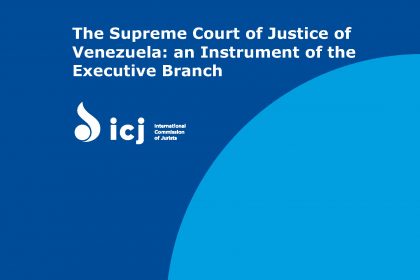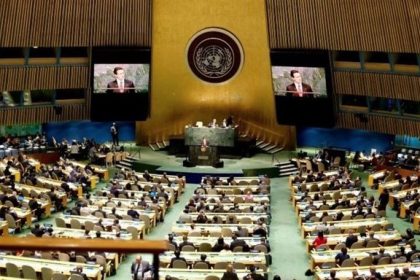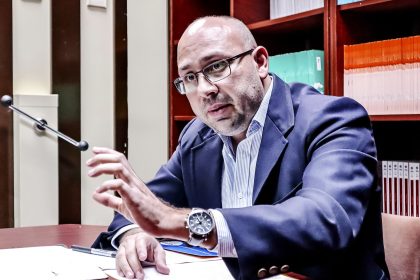Good evening, and thank you for coming.
This has been a short, but crucial, visit for me – the first-ever official mission by any UN High Commissioner for Human Rights to Venezuela. I will leave Caracas shortly but I leave behind a presence in the country – again, a first in Venezuela for the UN Human Rights Office. We have reached an agreement with the Government for a small team of human rights officers to be based here, with the mandate to provide technical assistance and advice, as well as – importantly – to continue to monitor the human rights situation in Venezuela.
I thank the Government for its invitation and for its cooperation and engagement with my Office, including with the team that visited in March this year. Ahead of my visit, we put forth a number of requests to the Government and have now agreed several outcomes, in addition to our presence here. We have the Government’s stated commitment for us to carry out an evaluation of the National Commission for the Prevention of Torture and to assess the main obstacles for access to justice in the country. In my meetings with victims and their families, their deep yearning for justice for grave human rights violations was made painfully clear. I sincerely hope that our assessment, advice and assistance will help strengthen torture prevention and access to justice in Venezuela. The Government has also agreed that my team will be guaranteed full access to detention centres to be able to monitor conditions and speak to detainees. They have committed to working towards broader engagement with and access for international human rights bodies – including the UN’s independent experts, known as Special Rapporteurs.
I welcome the release of opposition lawmaker Gilbert Caro from the custody of the intelligence agency, SEBIN. I also welcome the release of Melvin Farias and Junior Rojas, but I have called on the authorities to release all those in detention or otherwise deprived of their liberty for peaceful dissent.
The purpose of my visit was to open the space for us to engage more closely with State authorities and institutions, civil society and victims of human rights violations. I wanted to listen to all actors, to work with them towards the respect, promotion and protection of all the human rights of all Venezuelans.
I met with President Nicolás Maduro Moros and several Government ministers and officials, including the Minister of Foreign Affairs, Defence Minister and the Minister of the Interior and those charged with a host of different portfolios relating to economic, social, civil, political and cultural rights. I also met with the president of the Supreme Court, the Attorney General and the Ombudsman. I held discussions with the president of the National Assembly, Juan Guaido, and other members of parliament from different political parties, and also with the president of the National Constituent Assembly.
I also met victims of human rights violations and their families. The man who told of his brother’s torture, humiliation and killing by hooded FAES security officers in a raid on his house – and the many other heartbroken families whose loved ones suffered a similar fate. The father who showed off his son’s basketball trophy and the many medals he had won before he was killed while taking part in protests. The mother whose 14-year-old child was shot during demonstrations on 30 April this year. People who suffered horrific torture in detention. I also met victims of violence against Government supporters. A mother whose young son, a Government supporter, was set on fire during the 2017 protests and spent 15 agonising days in hospital before he died. A daughter whose father was killed for defending the rights of peasants to access land. Their stories were heart-rending. They all demanded justice. A Catholic priest from the Church for the Poor spoke poignantly about how it is the poor and the most vulnerable who are being hit the hardest. This is not about politics, he said, but about the suffering of the people.
I have raised and pledged to continue raising their concerns with the relevant authorities and to advocate for justice and redress for them – regardless of who the perpetrators are. I know that there are many more victims and their families that I was not able to meet, but let me say this: Your struggle for justice is important not only because of what you have suffered but because of what it means for all Venezuelans. You are not alone.
I have heard the voices of the demonstrators advocating for the protection of their rights and those seeking redress for the harms they have suffered. I have met with civil society representatives, trade unionists, religious leaders, members of the business community and academics from across the spectrum, as well as representatives of the international community and the UN agencies here.
They all bore testimony to how astonishingly the humanitarian situation in Venezuela has deteriorated, including with regards to the rights to food, water, healthcare, education and other economic and social rights. The Government has launched projects in an effort to ensure universal access to social programmes, to which it has dedicated 75 percent of the national budget. However, we have heard from Venezuelans who are fully employed – many in the public sector – who have difficulty affording medicine and adequate food.
The health situation continues to be extremely critical due to multiple factors, such as the shortage of medicine and equipment; the exodus of health professionals; the decline of water quality and sanitation facilities, as well as frequent power cuts. The cost and lack of availability of basic contraception in pharmacies has contributed to a rise in teenage pregnancies, and maternal and newborn mortality rates are also increasing. Healthcare workers have described to me how medical equipment like X-Ray machines are in short supply or have broken down; and those living with chronic diseases have told of the lack of life-saving medication. I have called on the Government to ensure that essential data related to healthcare and other economic and social rights is made available to enable all actors to accurately assess and seek to adequately manage the situation.
The causes of this immense economic crisis, which has been increasing dramatically from at least 2013, are manifold and I have discussed with the State the need to tackle them as a matter of priority with the support of the UN agencies that have recently been able to strengthen their presence in Venezuela. I am concerned that the sanctions imposed this year by the US on oil exports and gold trading are exacerbating and aggravating the pre-existing economic crisis.
Our report on the human rights situation in Venezuela mandated by the UN Human Rights Council in Geneva, scheduled to be presented on 5 July 2019, will contain more evidence-based information and objective analysis regarding all the human rights issues I’ve raised above as well as others, and constructive recommendations for the way forward.
In this time of grave economic, social and political crisis, I have called on leaders across the spectrum to seek to chart a way for Venezuela to confront the challenges and suffering of the people. All voices should be brought to the table. The crises can only be resolved through the meaningful, sincere participation and inclusion of actors from various sectors of society.
I have appealed to all political leaders to engage constructively with the talks facilitated by Norway and other such efforts to address the current political situation in Venezuela. The fate of more than 30 million Venezuelans rests upon the leadership’s willingness and ability to put the human rights of the people ahead of any personal, ideological or political ambitions. I understand the scepticism in Venezuela about the possibility of any such talks succeeding – but the dire situation here demands of its leadership the resolve to try. Holding firmly to entrenched positions on either side will only escalate the crisis – and the people of Venezuela cannot afford further deterioration of the situation in the country.
I call for bold steps towards compromise, to set aside short-term wins for medium-term and long-term gains for the entire country. The talks can succeed, as long as they are inclusive and those involved respond to the very real urgency to ensure their success.
Our Office stands ready to assist in ensuring that the human rights of all Venezuelans are fully protected, including through our presence here, which will be able to advise and work with State institutions, civil society and the UN system.

